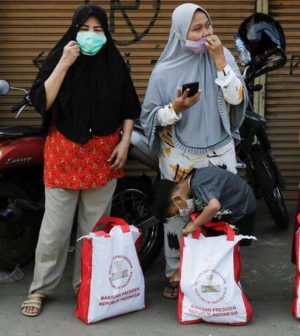- Finding Unshakable Power in a World That Wants to Pull Us ApartPosted 6 months ago
- What could a Donald Trump presidency mean for abortion rights?Posted 6 months ago
- Financial Empowerment: The Game-Changer for Women in Relationships and BeyondPosted 7 months ago
- Mental Health and Wellbeing Tips During and After PregnancyPosted 7 months ago
- Fall Renewal: Step outside your Comfort Zone & Experience Vibrant ChangePosted 7 months ago
- Women Entrepreneurs Need Support SystemsPosted 7 months ago
Women hardest-hit in pandemic job market, U.N. labour body says

Globally, between 2019 and 2020, 4.2% of women’s employment was eliminated as a result of the pandemic
GENEVA, July 19 (Reuters) – Women have been hit harder than men by job losses around the world due to the COVID-19 pandemic, and only men’s employment is likely to recover this year to 2019 levels, the International Labour Organization (ILO) said on Monday.
Women have been at greater risk of lay-offs or reduced working hours during periods of anti-infection economic and social restrictions, especially in sectors such as accommodation, food services and manufacturing, the U.N. agency said.
Many women have not only experienced severe loss of income but also continue to bear the brunt of unpaid care work.
“Even though the projected jobs growth in 2021 for women exceeds that of men, it will, nonetheless, be insufficient to bring women back to pre-pandemic employment levels,” the ILO said in a report.
Globally, between 2019 and 2020, 4.2% of women’s employment was eliminated as a result of the pandemic, representing a drop of 54 million jobs, compared to 3% of men’s employment or 60 million jobs, it said.
The number of employed women in 2021 is projected to be 13 million fewer than in 2019, while the number of men in employment is projected to be about the same as in 2019. “Only 43.2% of the world’s working-age women will be employed in 2021, compared to 68.6% of working-age men,” the ILO said.
The Americas had the largest regional drop in women’s employment due to the pandemic, at 9.4%, and prospects remain bleak for women in the region, it said. (Reporting by Stephanie Nebehay; Editing by Kevin Liffey)






